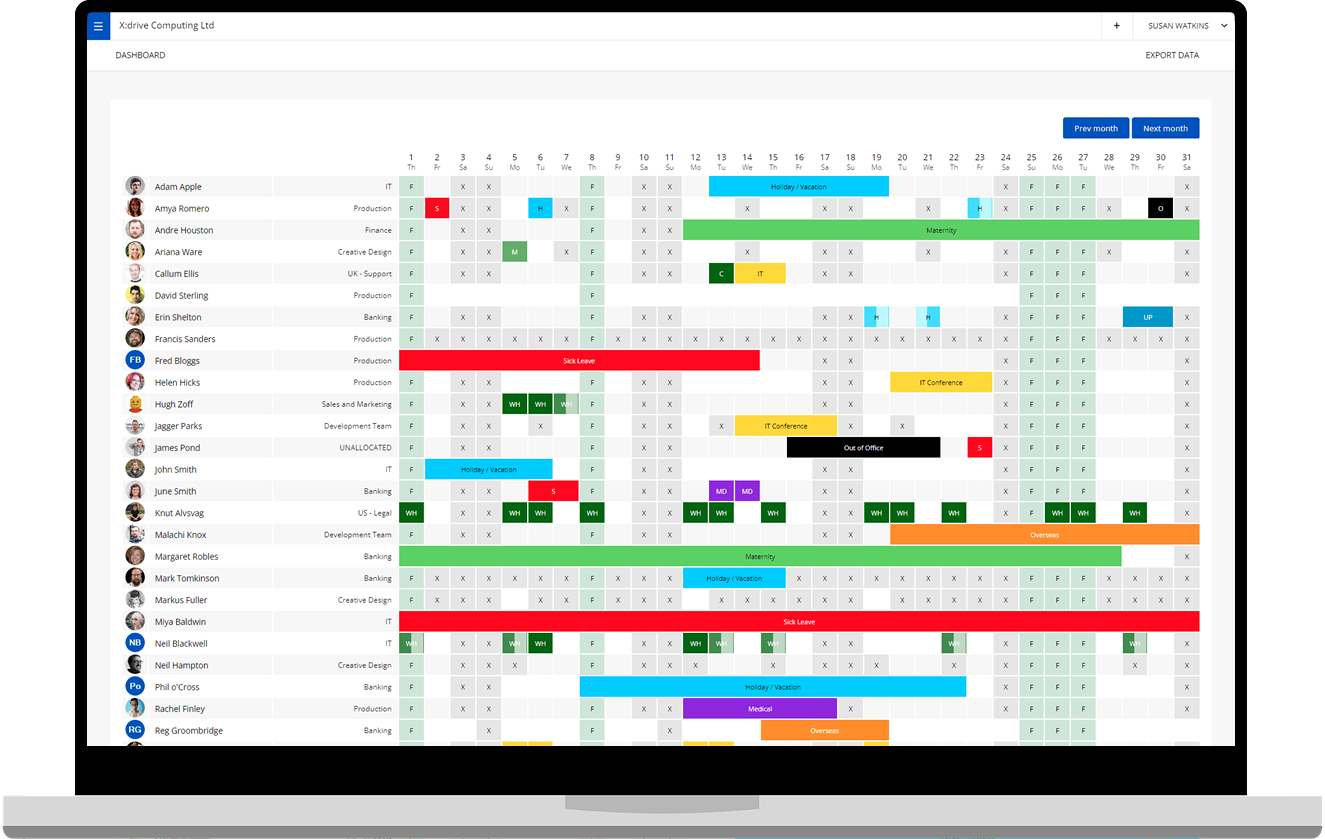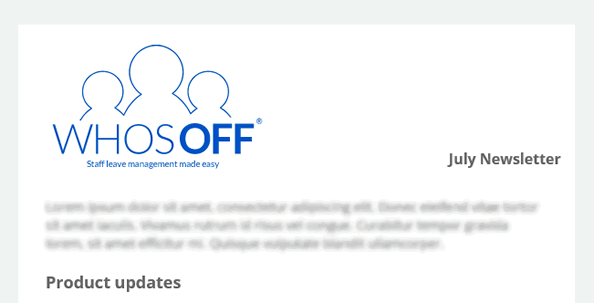
Businesses have dealt with a lot over the past few weeks. The global COVID-19 pandemic has forced companies to create new remote working structures, in order to ensure staff safety. And just as they get used to this 'new normal', further challenges arise – like managing annual leave in a climate of disruption.
While many of the immediate working headaches caused by the coronavirus outbreak have been solved, issues like leave management can catch companies out; causing problems further down the line if they aren’t dealt with effectively.
As expert providers of holiday planning software, WhosOff has some top tips for helping businesses to manage staff leave amid COVID-19 – so employees can still book time off, without it impacting overall productivity.
Changing plans in an evolving situation

Social isolation measures caused by coronavirus have already started to impact employees’ annual leave plans. Some staff members booked time off for holidays that have now been postponed or cancelled, so they want to push their leave back to later in the year. Others will be struggling to manage childcare demands, and so want to take time off at short notice.
Companies need to set their annual leave management up in a way that makes it easy to track and amend holiday bookings, even when staff aren’t sitting face-to-face. Paper-based holiday requests are impossible to manage when people are working remotely, and it’s easy for email requests to get lost in busy inboxes, or missed off the company holiday spreadsheet.
The simplest, most effective way to keep up-to-date with staff leave requests is through online holiday planning software. A central, digital system for logging leave allows all communications to be channelled through one platform, so everyone in the company can see what time they’ve booked off, the status of any outstanding holiday requests, and how many days remain in their entitlement.
Managing staff leave online streamlines the approval process, as managerial and HR staff automatically receive notifications when someone wants to book time off. The system will also send reminder alerts if a request has not yet been considered, removing the need for follow-up emails.
Managing holiday requests and flexible working
If last minute changes to holiday bookings weren’t stressful enough, the COVID-19 outbreak has also changed people’s working patterns – and this can also impact annual leave requests.
For example, staff with young children at home may arrange to work flexible hours, or to log overtime one week so they can take time off in lieu (TOIL) the next. These arrangements need to be tracked, so that managers can base holiday approvals on accurate knowledge of staff availability.
A comprehensive online holiday planner should be able to track multiple leave types, so TOIL, sickness, personal appointments and client meetings can all be logged centrally. This way, companies can feel confident that allowing staff to take time off won’t leave their colleagues under-resourced or short of expertise.

Considering the impact on next year’s leave policies
The annual leave management challenge isn’t something that will only affect businesses in the short-term; as the world returns to normal, disruption to holiday bookings will continue to impact HR processes.
For example, employees may want to rebook time off a few months down the line, which technically falls into a different holiday year. Equally, they may want to carry their remaining entitlement over to the next holiday year, rather than being forced to take time off when they can’t go anywhere.
Companies need to carefully consider the impact of carry-over following the COVID-19 pandemic, and update annual leave policies so that every person in their organisation is on the same page.
Staff leave management software can help to manage these changes, as the right platform gives businesses the ability to change holiday entitlements – setting different totals for each staff member, if necessary.
Moving to an online system can also help to manage nuances in holiday policies; for example, if staff are allowed to carry leave over, but only a certain number of days.
Limiting annual leave disruption
While leave management is a relatively small part running a business, this year has been the most complex and testing in many companies’ histories. Anything these organisations can do to make life simpler, reduce admin and keep hard-working staff happy is a good thing – especially if it prevents further problems down the line.

The faster companies can adapt their annual leave policies, and the more effectively they can manage those changes through online software, the easier they can create new working structures. These administrative improvements will ultimately help to stop coronavirus further impacting business productivity.
Book a free WhosOff trial to see how our online software improves the way companies manage staff holiday.
Photo by Markus Spiske, Burst, Polina Zimmerman, Anna Shvets, cottonbro, Pixabay from Pexels.com
Similar articles
10.APR.2025
As a business owner, HR manager, or professional responsible for managing a team, one of the key tasks you will face is understanding and planning for the number of working days in a year and working weeks in a year. Using an online leave management tool such as WhosOff can relieve some of this burden.
01.APR.2025
As the new financial year begins, businesses are gearing up to streamline operations, optimize resources, and ensure smooth workflows. One critical aspect of this preparation is managing staff leave effectively, here's where WhosOff can help.
28.JAN.2025
As a fundamental part of any business running smoothly, the management and tracking of staff leave is often a task that can be overlooked but can have a major impact on operations when things go wrong.
16.OCT.2024
Learn how our customers have accelerated their internal business processes by integrating with the WhosOff API to manage their staff leave and absence tasks.


